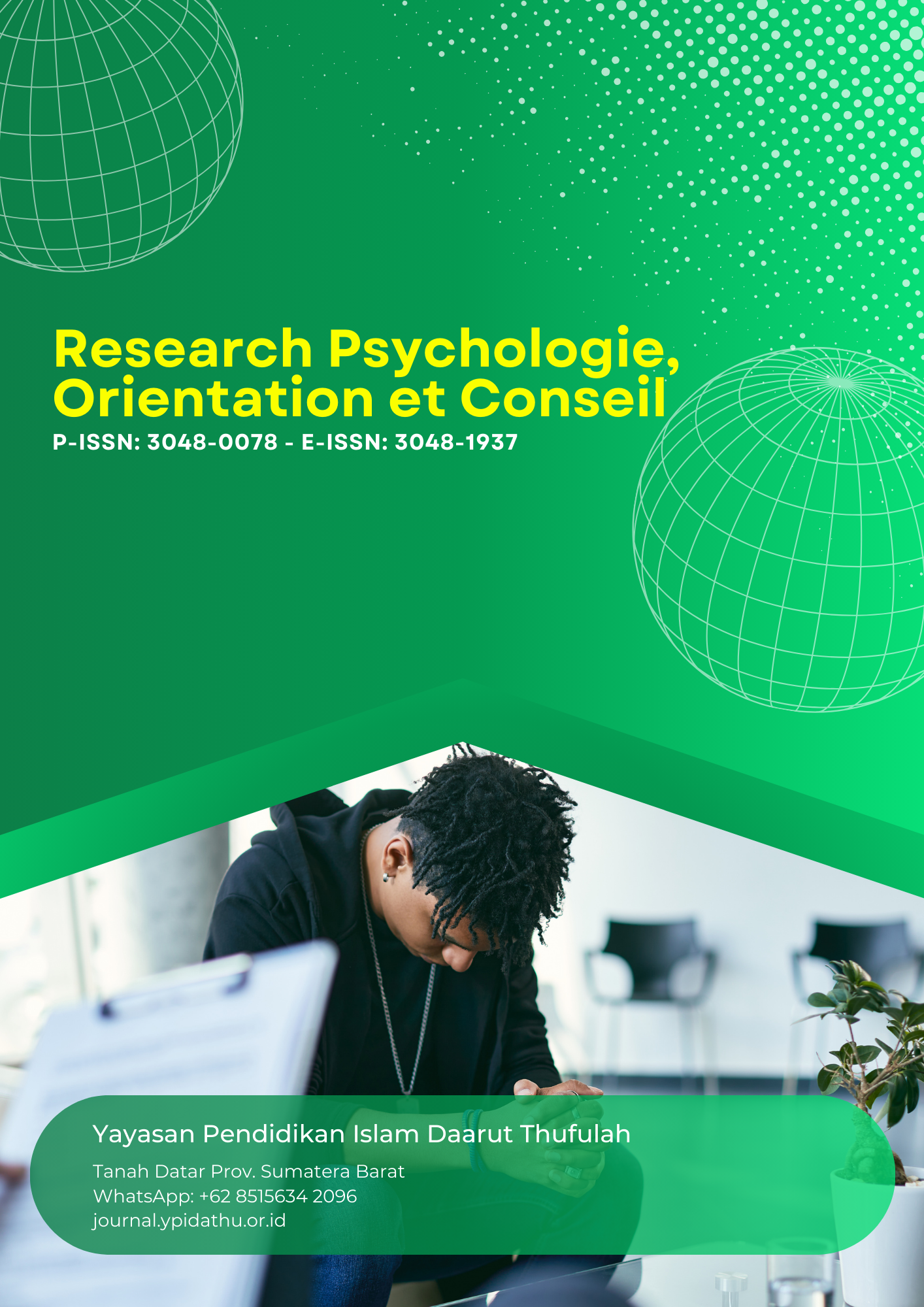Cognitive Development in the Digital Age: A Cross-Cultural Perspective
Abstract
The pervasive integration of digital technologies into adolescents’ lives has fundamentally altered their developmental environments. While the cognitive impact of this “digital age” is widely debated, research often overlooks how these effects are moderated by cultural context, which shapes how technology is adopted and utilized. This study aimed to conduct a cross-cultural comparison of the relationship between specific patterns of digital technology engagement and key cognitive functions, including attention, working memory, and problem-solving skills, among adolescents. A cross-sectional study was conducted with 400 adolescents (aged 14-16) from the United States (n=200) and South Korea (n=200). Participants completed standardized cognitive tests and a Digital Usage Questionnaire. Multiple regression analyses were used to examine the interaction between culture and technology use on cognitive performance. A significant interaction effect emerged. In the U.S. sample, higher social media use correlated with weaker sustained attention. In the South Korean sample, high engagement in collaborative online gaming was positively associated with enhanced problem-solving skills and working memory. The cognitive correlates of technology use differed significantly across cultures. The cognitive impact of the digital age is not universal but is profoundly shaped by cultural values that guide technology engagement.
Full text article
References
Abdullah, H., Mohd Zain, F. A., Juahir, H., Che Haron, H. I., Ismail, A., Islam, T., & Sheikh Ahmad Tajuddin, S. A. F. (2025). Developing Tahfiz empowerment index based on Maqasid Shariah. International Journal of Islamic and Middle Eastern Finance and Management. Scopus. https://doi.org/10.1108/IMEFM-06-2024-0317
Abubakari, M. S. (2025). Digital technologies adoption in islamic education for fostering lifelong learning culture: Pilot survey preliminary insights. In Multi-Ind. Digit. And Technol. Gov. In the AI Era (pp. 103–125). IGI Global; Scopus. https://doi.org/10.4018/979-8-3373-1681-9.ch005
Alam, A., Fardana, M. R. S., & Bagir, M. A. (2025). Digital Anti-riba Campaign:Netnographic Study from Xbank Indonesia Digital Community. Journal of Islamic Thought and Civilization, 15(1), 224–239. Scopus. https://doi.org/10.32350/jitc.151.13
Alismail, A. M., Almulla, M. O., Elshazly, A. I. A., & Alsubaie, M. M. (2025). Digital awareness and its relationship to achieve motivation among student teachers. International Journal of Innovative Research and Scientific Studies, 8(2), 1833–1845. Scopus. https://doi.org/10.53894/ijirss.v8i2.5553
Azman, N. A., Hamzah, M. I., & Baharudin, H. (2025). Digital Teaching Strategies of Islamic Education Teachers: A Case Study in Primary Schools. International Journal of Learning, Teaching and Educational Research, 24(3), 562–585. Scopus. https://doi.org/10.26803/ijlter.24.3.27
Bhurawala, H. (2025). Developmental and Learning Problems in Schoolchildren: Understanding Impacts on Well-Being in the Context of Islamic Schooling. In Wellbeing in Islamic Schools: Nurturing the Mind, Body and Soul (pp. 235–251). Springer Nature; Scopus. https://doi.org/10.1007/978-3-031-76730-2_12
Darabi, F., Ziapour, A., & Ahmadinia, H. (2025). Digital health literacy and sociodemographic factors among students in western Iran: A cross-sectional study. BMC Medical Education, 25(1). Scopus. https://doi.org/10.1186/s12909-025-06774-y
Ernawati, K., Hayurani, H., Haryanti, S. C., & Utami, S. P. (2025). Development of a home health assessment application and website-based family disease registration. International Journal of Innovative Research and Scientific Studies, 8(3), 4471–4477. Scopus. https://doi.org/10.53894/ijirss.v8i3.7538
Mariyono, D., & Ghony, M. D. (2025). Entrepreneurial basic capital and its contribution to developing multicultural Islamic education. Journal of Education and Learning, 19(2), 684–698. Scopus. https://doi.org/10.11591/edulearn.v19i2.21554
Memon, S. B., Syed, S., & Dahri, A. S. (2025). Embedding Social Responsibility in Islamic Banking: Ethical Foundations and Modern Practices. In Islamic Finance and Corporate Gov.: Synergies for Sustainable Growth (pp. 57–74). Emerald Group Publishing Ltd.; Scopus. https://doi.org/10.1108/978-1-83662-346-520251008
Muzayanah, U., Maknun, M. L., Sa’ad, F., & Taruna, M. M. (2025). Digital learning models: Experience of online learning during the pandemic. International Journal of Evaluation and Research in Education, 14(2), 1196–1206. Scopus. https://doi.org/10.11591/ijere.v14i2.30032
Nazir, M. A., Roomi, M. A., & Khan, M. R. (2025). Entrepreneurial firms in the crypto era: Adoption trajectories and innovation dynamics. Journal of Small Business and Enterprise Development, 32(8), 18–53. Scopus. https://doi.org/10.1108/JSBED-11-2024-0580
Pusparini, M. D., Bonang, D., Virgiawan, R., Sukmana, R., Lahuri, S., & Fedro, A. (2025). Does religiosity affect green entrepreneurial intention? Case study in Indonesia. Journal of Islamic Marketing, 16(2), 548–575. Scopus. https://doi.org/10.1108/JIMA-12-2023-0419
Putri, A., & Sansuwito, T. B. (2025). Developing Knowledge of Sexual and Reproductive Health among Adolescent Girls Through a Peer Mentoring Approach in Nursing. Malaysian Journal of Nursing, 16(3), 205–214. Scopus. https://doi.org/10.31674/mjn.2025.v16i03.020
Rad, V. S., Fardinpour, Y. K., Behzadi, M. H., & Semnani, A. S. (2025). Drawing a Scientific Map and Analyzing the Co-occurrence Network of Master’s Dissertations and Doctoral Theses in Mathematics Education at Iranian Universities. Scientometrics Research Journal, 11(1), 235–260. Scopus. https://doi.org/10.22070/rsci.2024.19206.1738
Restuti, D. P., Kasdi, A., & Cahya, B. T. (2025). Economics issues of halal industry. In Explor. The Halal Industry and Its Bus. Ecosyst. Prospect. (pp. 1–22). IGI Global; Scopus. https://doi.org/10.4018/979-8-3693-8618-7.ch001
Salihu, A., Jahun, I., Oyedeji, D. O., Fajemisin, W., Idogho, O., Shehu, S., & Anyanti, J. (2025). Ensuring equitable access to quality HIV care for affected populations in complex sociocultural settings: Lessons from Nigeria. PLoS ONE, 20(5 May). Scopus. https://doi.org/10.1371/journal.pone.0319807
Sellami, I., Amin, H., Ozturk, O., Zaman, A., Sever, S. D., & Tok, E. (2025). Digital, localised and human-centred design makerspaces: Nurturing skills, values and global citizenship for sustainability. Discover Education, 4(1). Scopus. https://doi.org/10.1007/s44217-025-00413-w
Siregar, H. S., Munir, M., & Fikri, M. (2025). ENHANCING ISLAMIC EDUCATION THROUGH TECHNOLOGY INTEGRATION: A STUDY OF TEACHING PRACTICES IN INDONESIA. Jurnal Ilmiah Peuradeun, 13(2), 959–986. Scopus. https://doi.org/10.26811/peuradeun.v13i2.1875
Sulistiani, D., Bashith, A., & Amin, S. (2025). E-learner success assesment model (E_LSAM) in higher education: Does it work? Edelweiss Applied Science and Technology, 9(1), 189–202. Scopus. https://doi.org/10.55214/25768484.v9i1.4006
Sulistyowati, E., & Adira, H. F. (2025). Development of TPACK Instrument to Measure Teacher Knowledge in Islamic Education for In-Service Teacher Professional Training. Educational Process: International Journal, 16. Scopus. https://doi.org/10.22521/edupij.2025.16.193
Wan Mokhtar, W. K. A., Ibrahim, M. N. A., Jubba, H., Qudsy, S. Z., & Embong, A. H. (2025). DEVELOPING MALAYSIA MADANI: THE IMPACT OF GENDER AND STUDENT ORIGIN (URBAN VS. RURAL) ON LEADERSHIP, CITIZENSHIP, AND DEMOCRATIZATION IN MALAYSIAN UNIVERSITIES. Planning Malaysia, 23(2), 520–535. Scopus. https://doi.org/10.21837/pm.v23i36.1736





